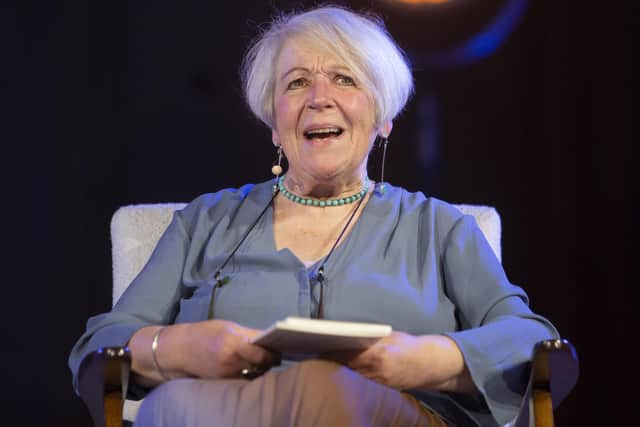Book Festival Round-Up: Liz Lochhead | Michael Pedersen | Colm Toibin
Not many writers have the honour of a 50th anniversary edition of their first book, but a proud Liz Lochhead held up both versions of her first poetry collection, Memo for Spring, for the Book Festival audience to see. With a new production of her adaptation of Medea currently attracting rave reviews at Edinburgh International Festival, she admits that her 75th year is turning out to be rather busy.
Memo for Spring was published by Gordon Wright’s Reprographia in 1972, after he heard Lochhead read with Norman MacCaig at Edinburgh University, and the book immediately attracted widespread attention. Most of the poems had been written when Lochhead was at Glasgow School of Art, gradually realising she was more comfortable painting pictures with words than with a paintbrush.
Advertisement
Hide AdIt was some ten years later, in the early 1980s, that the collection was picked up by a 16-year-old Ali Smith, while babysitting for her English teacher’s children. Sitting on the floor reading it from cover to cover had, she says in her introduction to the new edition, “an impact the size of a changed world”. Here was the unmistakable voice of “a poet, a woman and a Scot”, and the possibility that one could be all these things. Many women writers owe Lochhead that important debt.


Scottish poetry is a different world today, five decades later, the “men with tweed jackets” of the 1970s replaced by young writers such as Michael Pedersen, who emerged through the spoken-word scene around Edinburgh’s Neu!Reekie! For events around the publication of his friendship memoir, Boy Friends, he has been inviting friends to share the platform, in this case rather famous friends: singers Charlotte Church and Garbage’s Shirley Manson.
Manson promptly turned into the asker of questions at the event, inviting Pedersen to talk about his book, and in particular, his friendship with Scott Hutchison, the frontman of Scottish indie band Frightened Rabbit, who took his own life in 2018. Six weeks after Hutchison’s death, Pedersen found himself on a writer’s residency in Northern Ireland, too raw to write about grief, but able to recall the “favourite moments” of their friendship. This, he said, is not a “grief book”, it’s a celebration.
The three discussed friendship in general: first friends, lifelong friends, first loves. Church paid tribute to the “vivacious feral girl-gang” who were her companions in her teens and early twenties, and spoke about the evolution of her band, Charlotte Church’s Late Night Pop Dungeon, where she plays mash-up covers with her friends. Manson’s story was darker, about how difficult it can be to make and keep friends when you’re famous, when some around you become jealous of your success.
Pedersen managed to find time to perform a couple of spoken-word pieces from his book, and Colm Toibin dipped into poetry, too, at his event later the same evening, reading a poem from his first poetry collection, Vinegar Hill, which he put together during lockdown. But his focus was on the magic of fiction, in particular his new novel The Magician, inspired by the life of Thomas Mann.
He described how he found magic in the “gap between the public person and the private self”: how Mann was a conservative father of six, a Nobel laureate and an authority on literature, it was only when his diaries were posthumously published that the extent of his homosexual desires were revealed. In fact, it is possible that the true heroine of the story might be his wife of 50 years, Katia, who seemed to be the only person not surprised by the revelations.
Advertisement
Hide AdToibin spoke of the challenge of weaving into the book the lives of all of Mann’s six children, and the wealth of research the book entailed. He might agree, in part, with Liz Lochhead, who said that writing is editing: “There were 55,000 words taken out of this book, and anyone who reads it should be grateful,” he said.